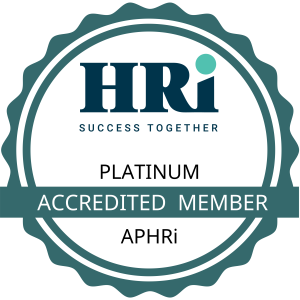Why would your business consider using a settlement agreement? Believe it or not, it doesn’t matter how positive you think your company culture is, you never know when conflict or disputes might occur in the workplace. That’s when preparing a settlement agreement might come handy.
So, what is a settlement agreement? Here, we look at what a settlement agreement is and when you might need to use one.
What is a settlement agreement?
In short, a settlement agreement, formally known as a ‘compromise agreement’ or ‘termination agreement’, is a legally binding contract between an employee and employer that settles any claims the employee might have against the employer. While settlement agreements can be proposed by either the employer or employee, in most cases it tends to be the employer.
In general, a settlement agreement means that the employee will waive all of their employment rights, including unfair dismissal and discrimination claims, in exchange for a financial compensation payment. However, each settlement agreement is bespoke to each individual circumstance.
It’s imperative to note that for a settlement agreement to be valid, it’s essential that legal advice is sought. For further support, contact the team at NESE HR and we will be able to help you take the necessary next steps to avoid further issues.
Does a settlement agreement always mean the end of employment?
A settlement agreement is often used as part of a redundancy situation, where any redundancy payments are enhanced, or in some cases, to end employment on mutual grounds. An excellent example of this is if an employee is not performing well, and instead of both parties undergoing a long capability process, the employee and employer agree to bring the employment to a quick end using a settlement agreement. Its important to note however, that each situation must be treated very differently based on the circumstances and or risk factors.
What is included in a settlement agreement?
A settlement agreement must contain a clear breakdown of the payments which have been mutually agreed upon by both parties (employee and employer). It should also state whether these payments can be paid to the employee tax-free – it’s worth noting that payments of up to £30,000 compensation can often be paid tax-free, also known as an ex-gratia payment, however, it’s always best to seek advice and support from an HR specialist, like ours here at NESE HR, as there are many complexities around what must be taxable and what is considered ex-gratia.
A settlement agreement generally includes:
- Some sort of payment (compensation for loss of office)
- Any entitlement to notice subject to contract
- Any accrued holiday which has not yet been taken, but accrued
- Any bonuses and commissions owed, where due dependant on the circumstances and Company policies
- Any necessary pension contributions where necessary
- A contribution towards a legal advisor reviewing the settlement agreement on behalf of the employee, subject to Company discretion on the amount. In most cases either £350 – £500 is used as an approximate figure.
Other elements included in a settlement agreement includes:
- A reference
- A confidentiality clause
- Any other restrictions
- Post-employment agreements
Does the employee need to sign the settlement agreement?
The settlement agreement is usually signed by the employee, their legal advisor, and a senior manager/director of the business.
At this stage, the agreement becomes legally binding.
Are you an employer needing advice regarding settlement agreements? Do you need professional HR support?
Settlement agreements can often provide the perfect solution for workplace disputes, without the need for either side to resort to legal action. However, the process can often seem overwhelming and confusing, so it’s always best to seek professional support and advice from HR specialists. At NESE HR, we listen to your individual circumstances, so together, we can decide whether the settlement agreement route is the right option for you and your business. Get in touch to find out more at NESE today.
If you want to keep HR easy, contact NESE!
